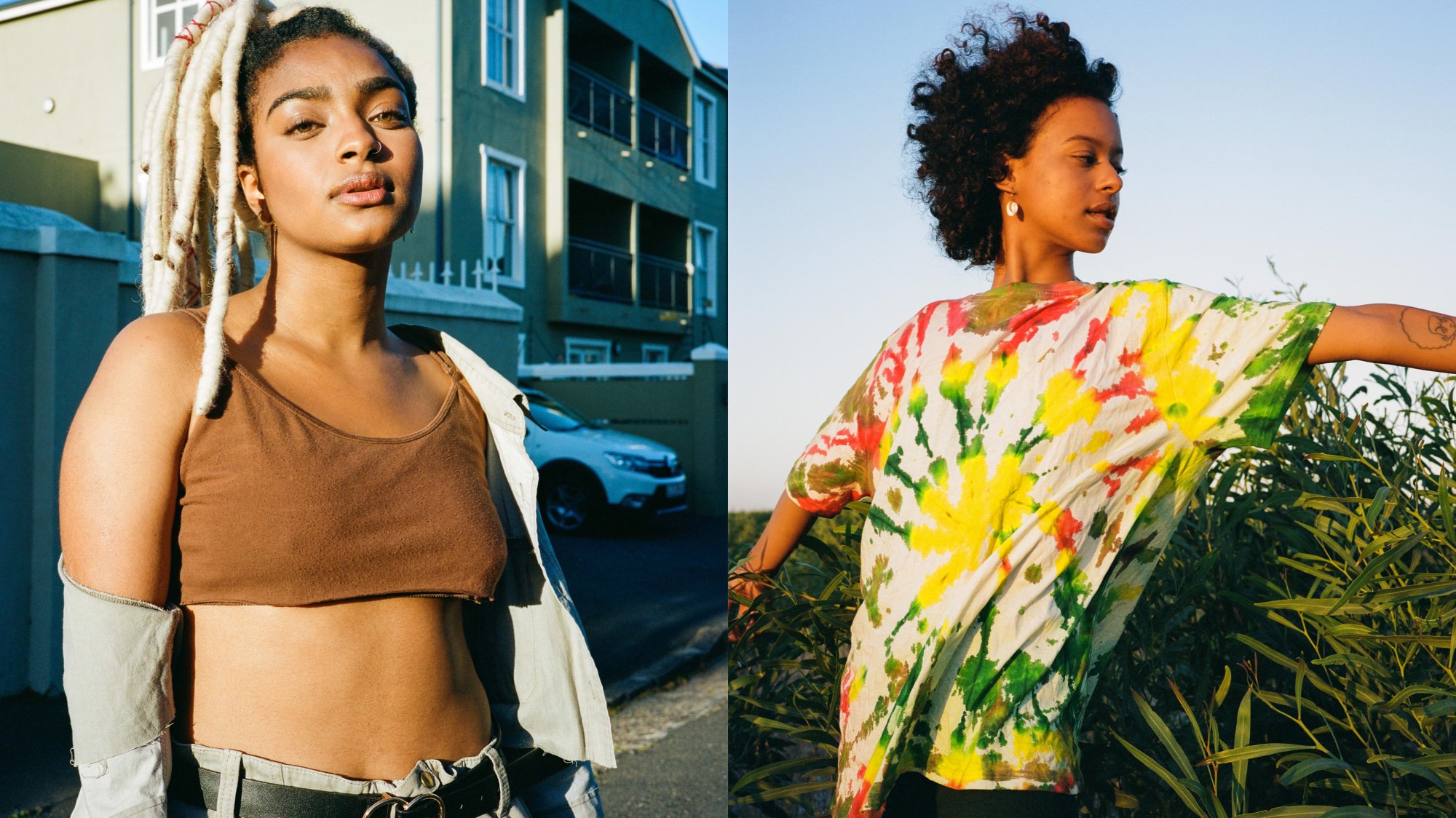“Beyond the glamour and the world-famous beaches, there’s a rich, vibrant, and diverse creative culture driven by passionate youth,” Tsele Nthane, a photographer who has lived in Cape Town for the past 10 years, tells me. Tsele began shooting this community around four years ago — connecting with many of his subjects via Instagram and forging friendships through these collaborations. “I think what makes the youth special is what makes the city special,” he adds. “And I love people being able to express the things they are passionate about.”
With the following series — shot between the bedrooms, street corners and quiet green spaces of Cape Town — Tsele wants to give people a truthful glimpse into the lives of young creatives hustling in a city that is often misunderstood and overlooked. The past year has been particularly hard for young people in South Africa. Back in March, the president introduced one of the strictest and most severe lockdowns in the world, shutting down the country’s borders, prohibiting the sale of alcohol and imposing a strict night curfew. After a general easing of the rules in the months that followed, a second wave of cases late in 2020 meant a return to the same lockdown measures.
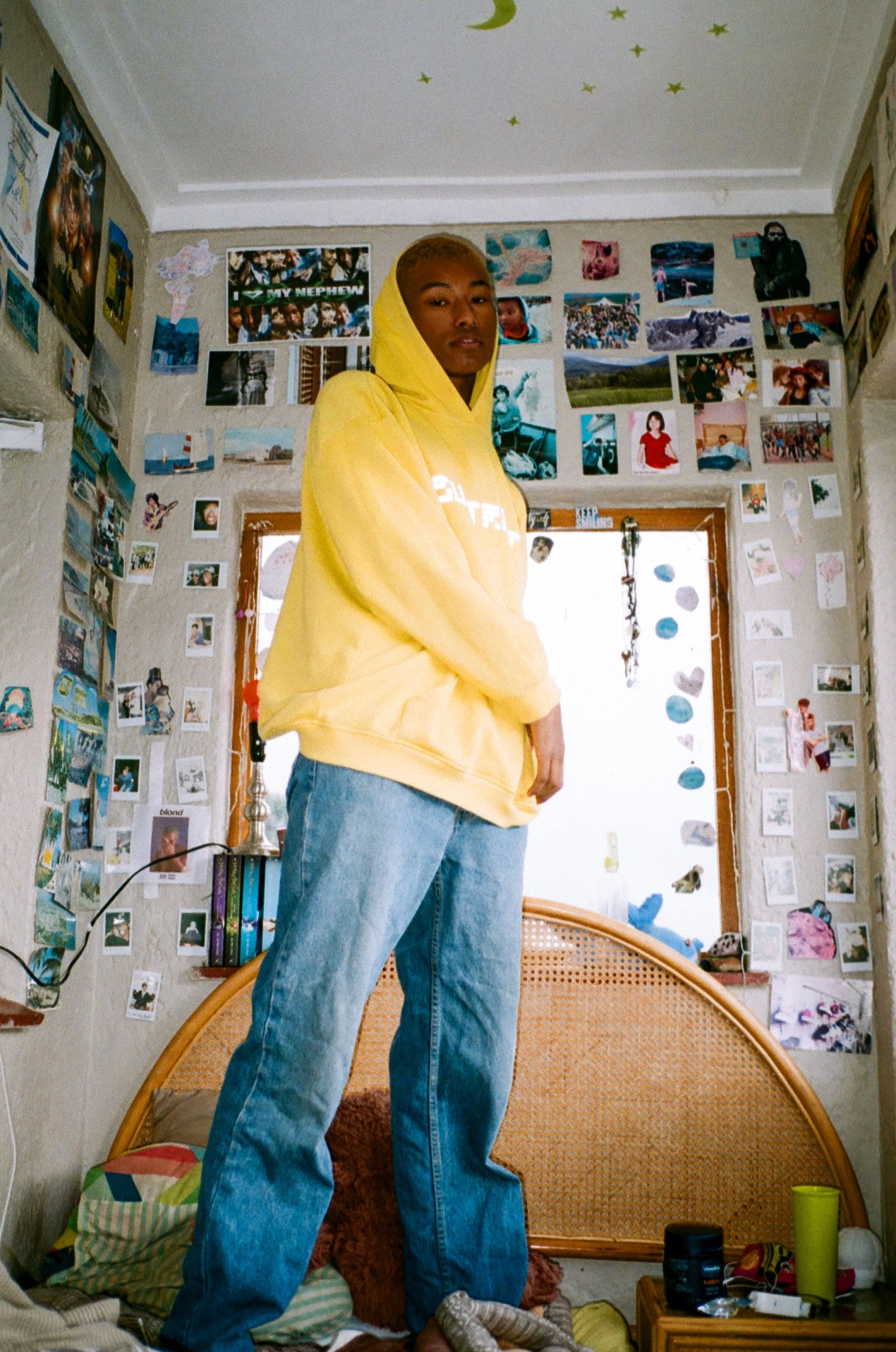
South Africa’s already vulnerable youth have been particularly affected by the consequences of the pandemic. With an unemployment figure of approximately 55.8% for 15- to 24-year-olds in 2020, one of the country’s greatest challenges is finding work for its younger population. According to a study by the University of Cape Town (UCT), young people are facing a far more uncertain future than those who have had time to develop skills and start their careers. “I’ve had to learn to adapt by finding new ways of coping, such as being more open to asking for assistance, or treasuring the presence of my close friends and family more,” Tsele says.
For 18-year-old Deylin Malachi, a high school student and model, and one of Tsele’s new connections, being young in a city like Cape Town during lockdown was “absolute trash”. But, at the same time, he says he’s blessed to belong to a generation that finds humour in their trauma. And, what’s more, if ever there was a generation able to adapt to these changes, it’s his. “Gen Z is just inclusive by nature; there’s an accepting space for everyone, and because of social media, you can connect with your people wherever they are in the world,” Deylin says. “We’ve adapted really quickly from physically socialising to virtually socialising, and even though it is vastly different, it works.”
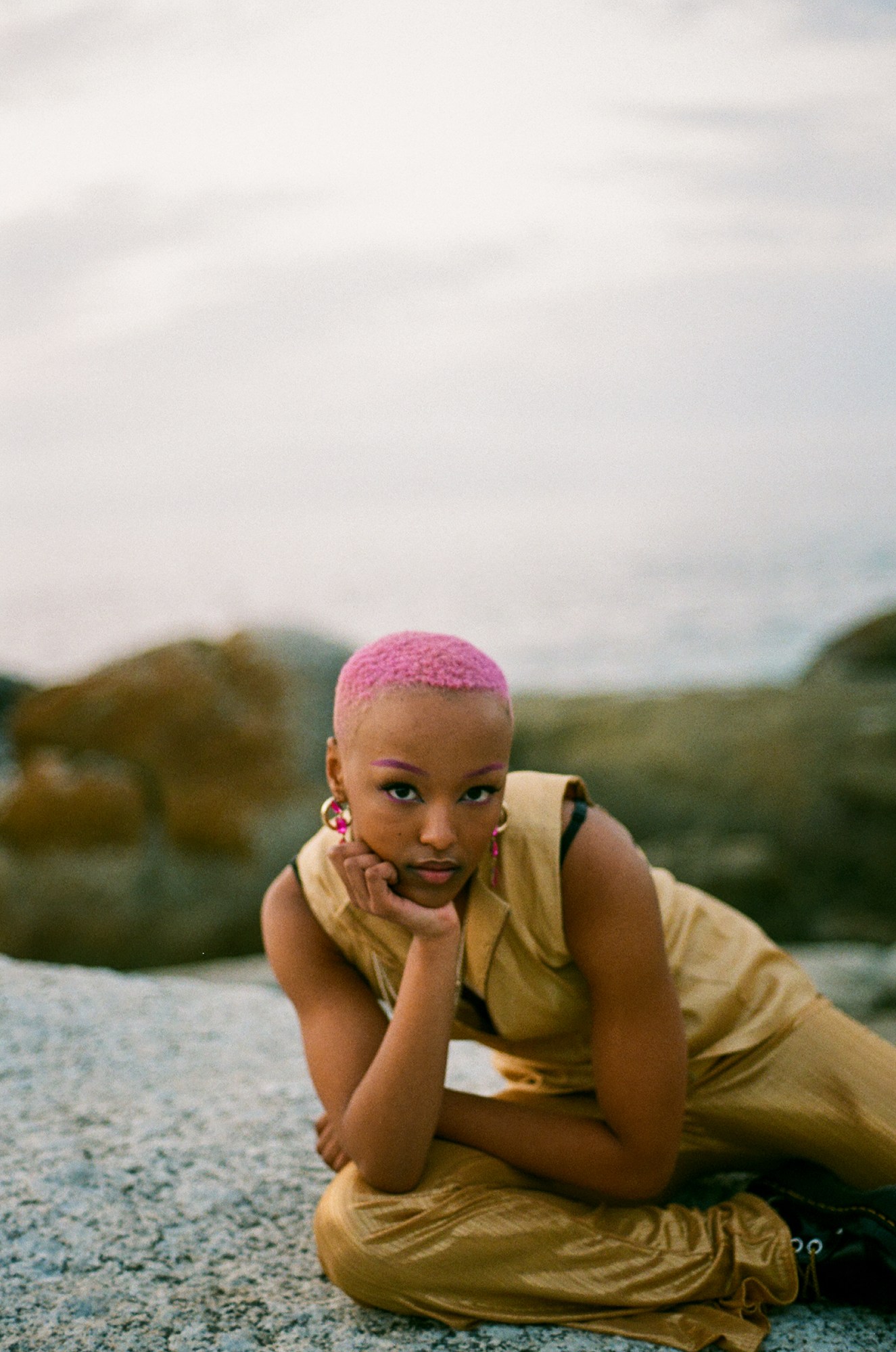
For Sheree Draai, a 23-year-old student of Occupational Therapy, it felt unfair to be living in a city like Cape Town and not be able to enjoy its potential over the past year. “Especially at this age, where you want to take full advantage of your youth and the opportunities you’ve been afforded,” she says. But, that’s not to say there haven’t also been positives accomplished in the boredom; positives many plan to take with them into a post-pandemic world. Zinam Klaas, a 19-year-old student of Journalism, Media Studies and Psychology, found lockdown helped her and her community to become more aware of themselves and their greater potential. “Cape Town was made for the youth. Being able to go out and explore different aspects of the city and its people is one of the reasons this place is my home. But with lockdown taking away much of that, I had to learn how to find and form closer connections with people in my community.”
Since the beginning of March, Cape Town has moved back to its lowest tier of lockdown, with a curfew running from 12pm to 4am, and events allowed at reduced capacity. A successful first phase of the vaccine rollout began in February, and normality is on the horizon. Meanwhile, Tsele has begun work on a new series, documenting his daily processes and asking his friends and collaborators to document theirs too through self-portraits and personal notes on how things changed for them. “It was a really slow period,” Tsele adds, “but I think it gave us all the opportunity to think about what we wanted to work on next creatively and a chance to reflect on the work we had already done.”
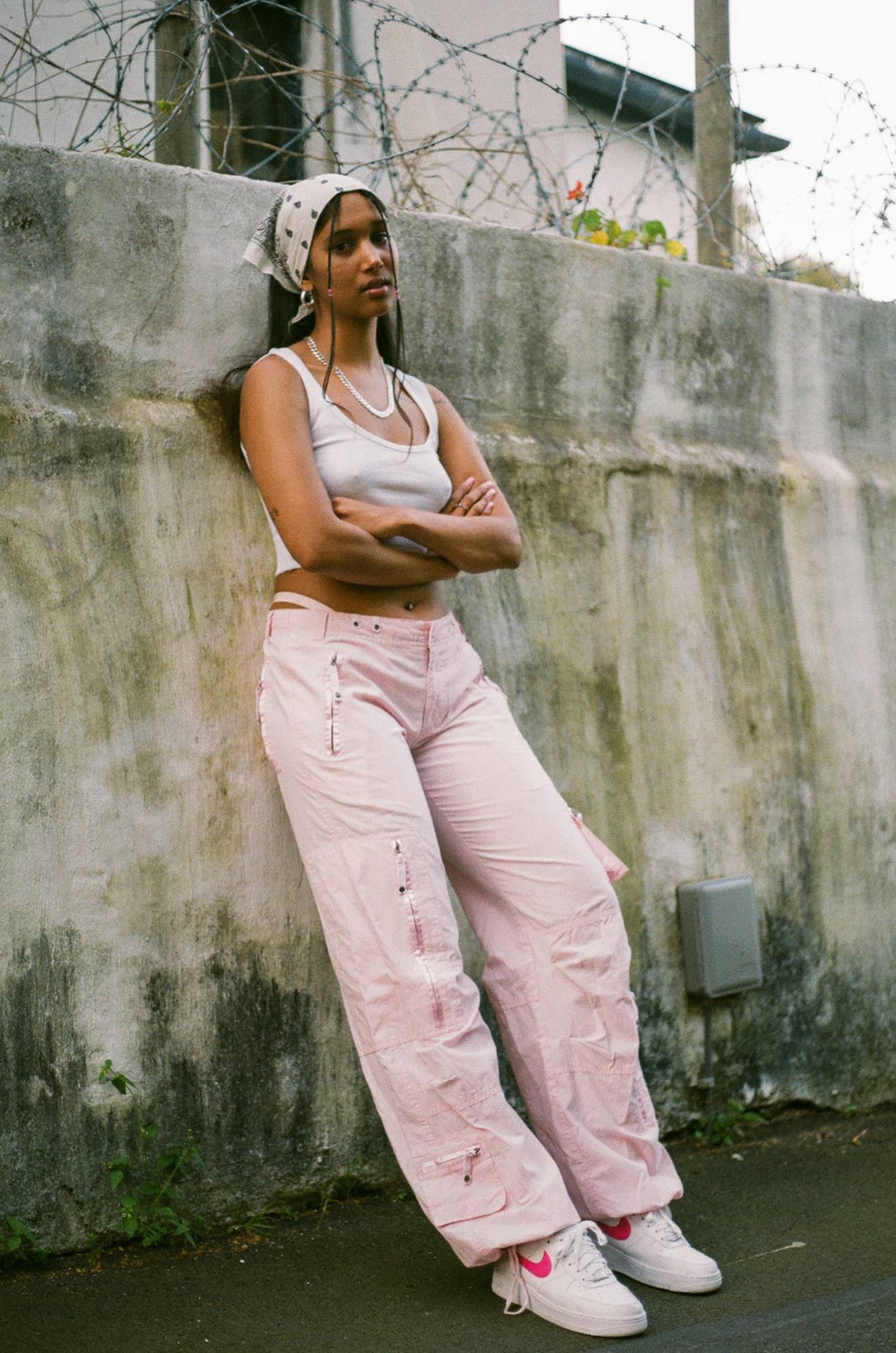
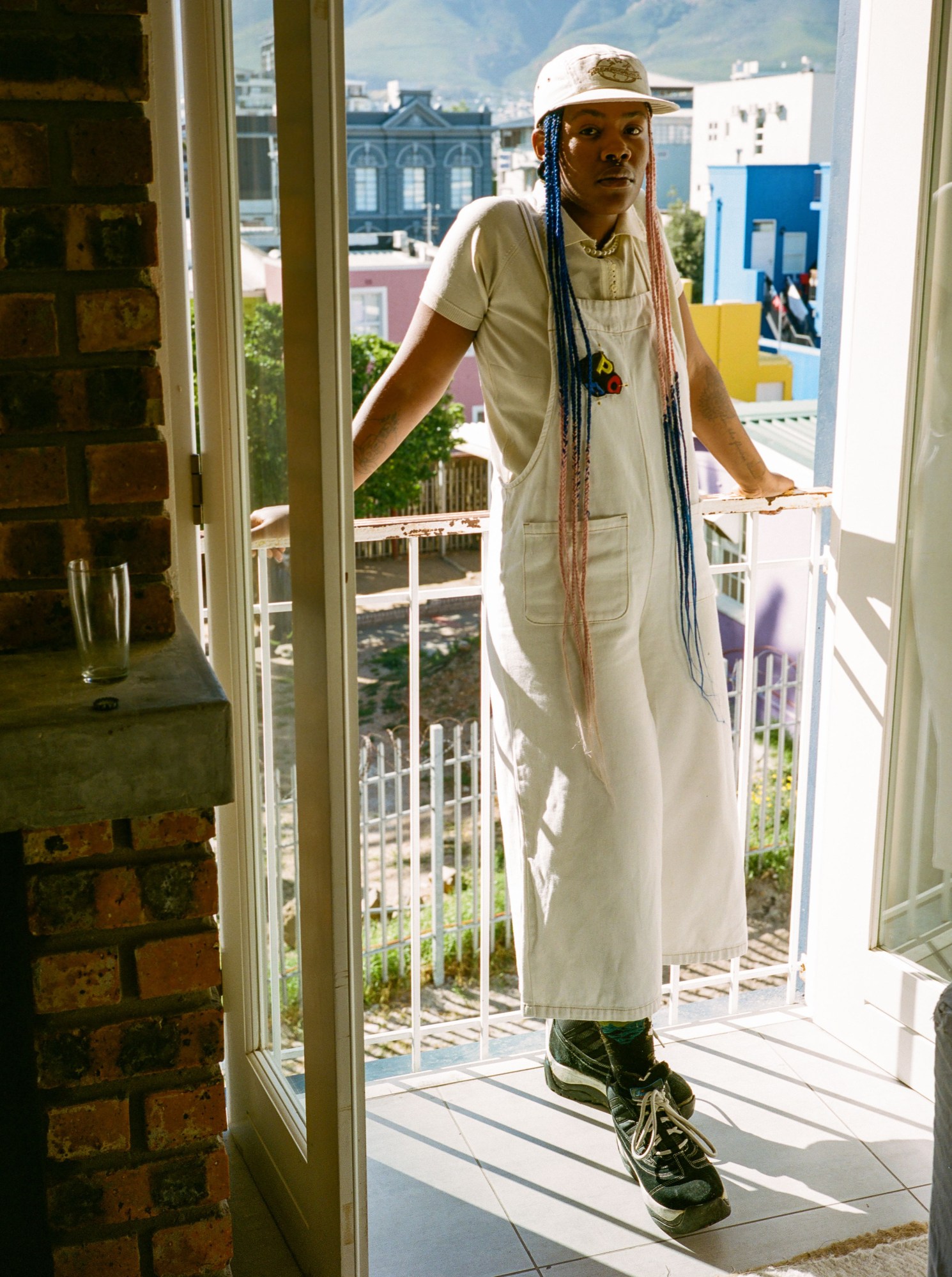

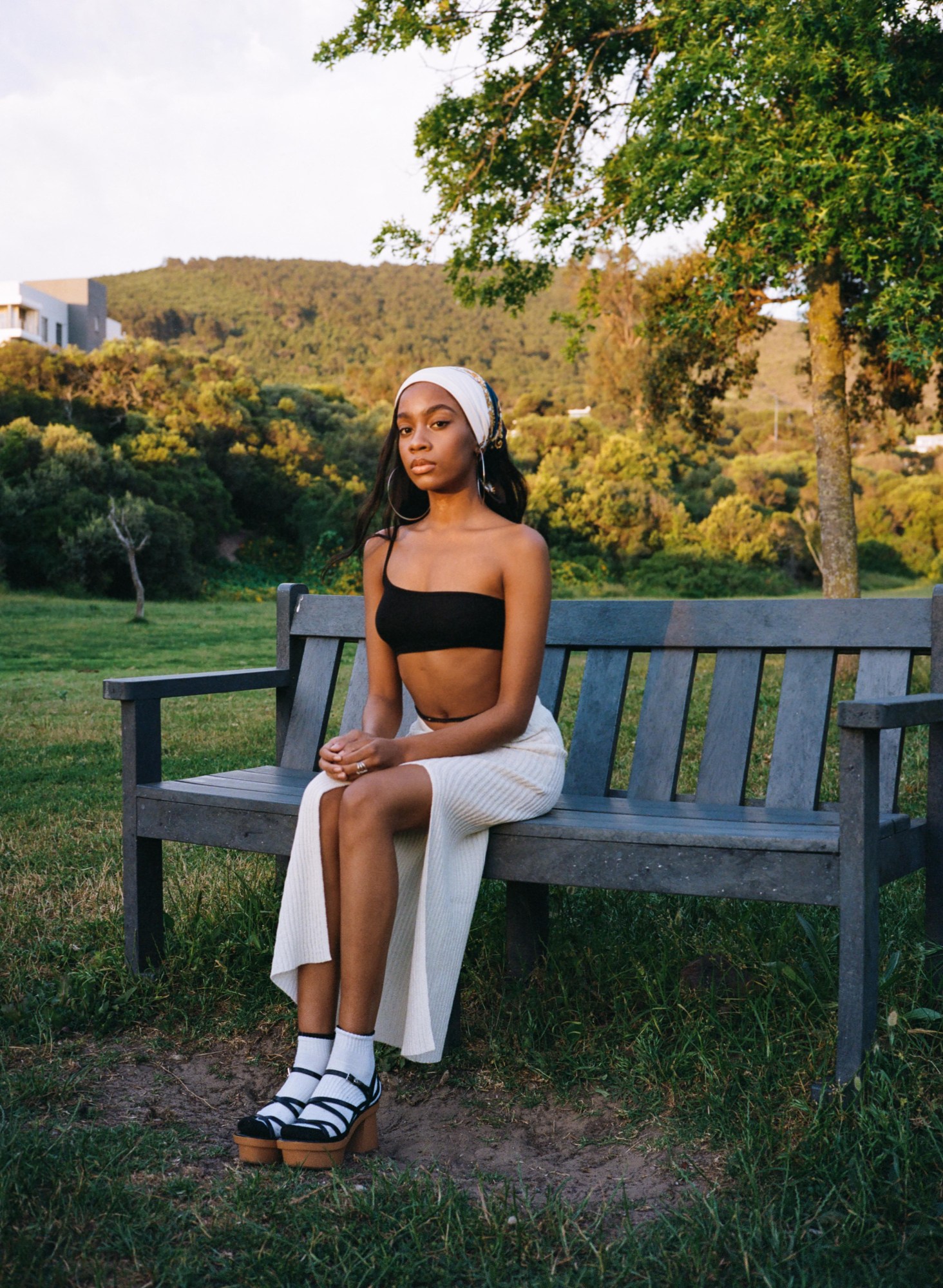
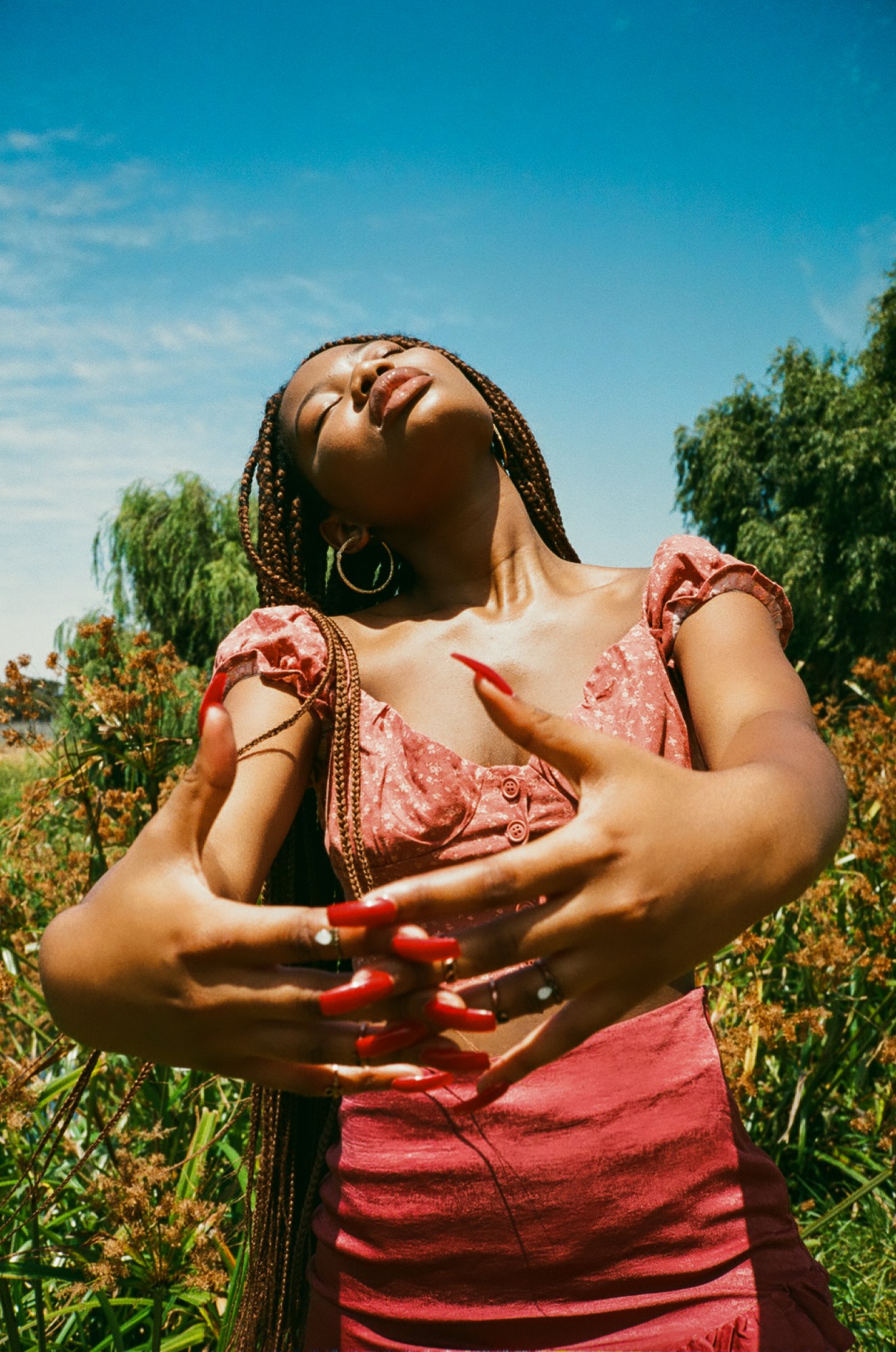

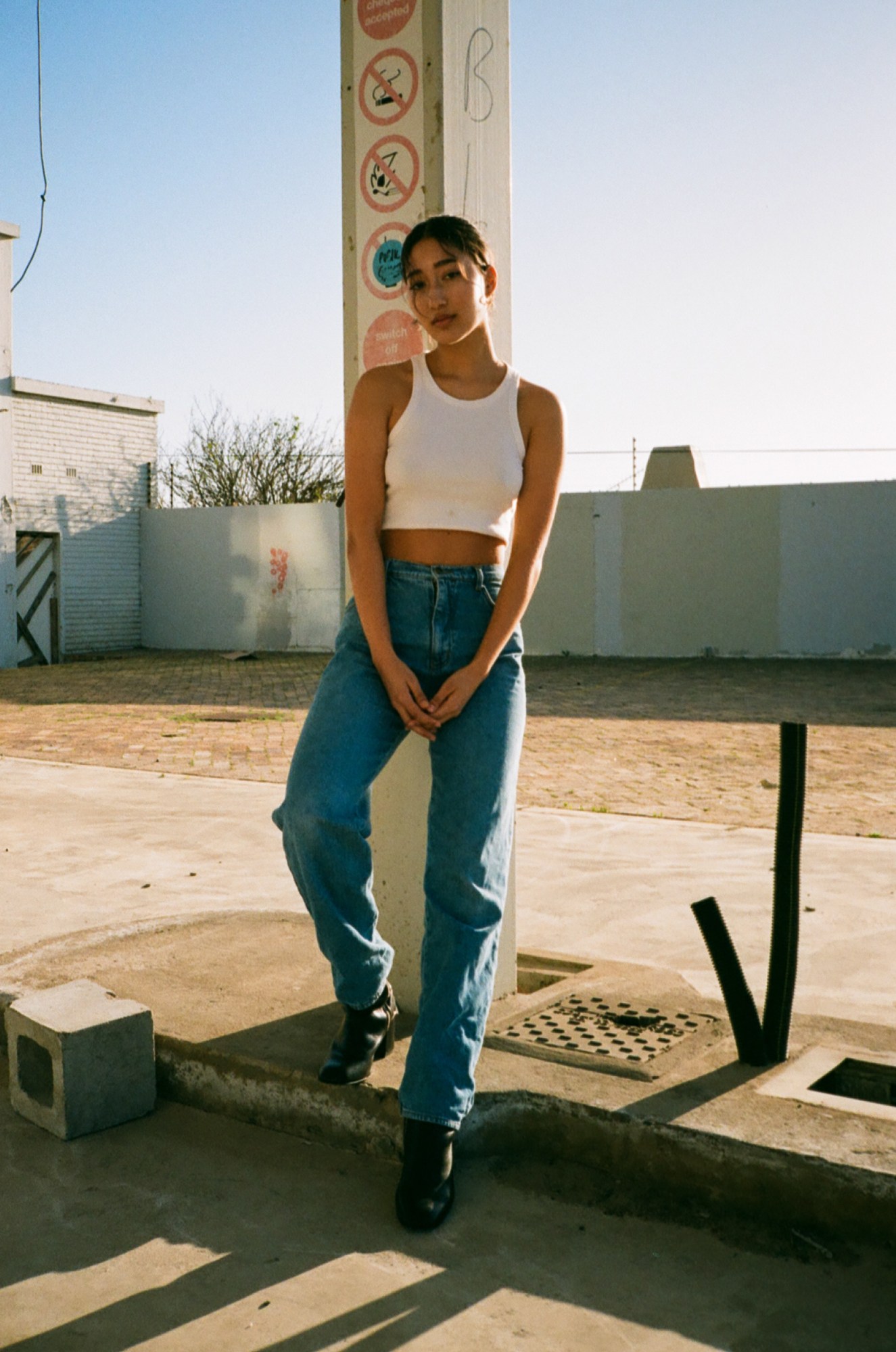

Credits
All images courtesy Tsele
